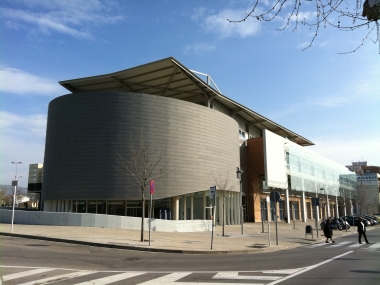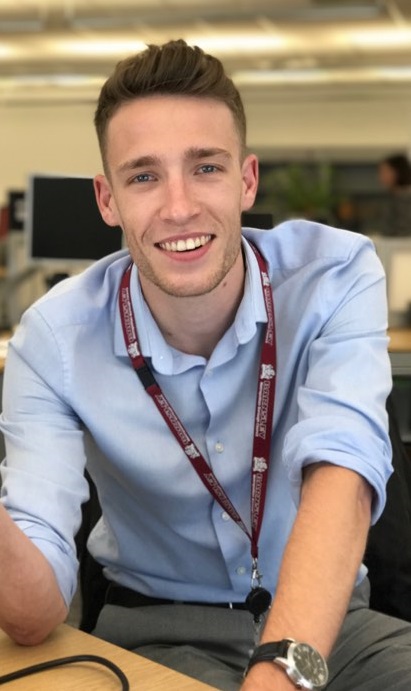Vilanova i la Geltrú Transfer Story
Edited on
22 June 2021"URBACT support has been essential to overcoming the challenges. It gave INSPIRATION at a personal, team, institutional and city level, empowering the move from immobility to action. The CONTEXT it provided helped local stakeholders to face the fear of change, providing time for reflection and the structure of a comfortable, safe space to discuss next steps, share ideas and take some informed risks. It also brought new TOOLS and METHODS that could be applied and adapted locally, to improve ways of working, achieve a better understanding and to advance faster."

The city of 66,000 people has a coastal location to the south of Barcelona in Catalonia and is a large fishing port. What isn’t so evident is Vilanova’s heritage of learning and innovation, having long established universities and a tradition of using new technologies in their industries - metals, textiles and chemicals. Part of this is Neàpolis, the city’s business support and innovation hub.
City leaders in Vilanova were forward thinking and took a calculated risk to set up Neàpolis in 2008 as the Innovation Agency of the City Council. The centre was designed to take advantage of the new facilities of the local TV and radio to deliver a new concept space and support for businesses from the digital and creative industries, helping to enable this aspect of the economy. Whilst many of the original ambitions have been a success, including a 95% business occupancy rate, the centre had a difficult to start - operating during the 2008/9 economic crisis and its knowledge-based services were relatively complex to deliver. It meant that the impact and value for money of Neàpolis were questioned by citizens and politicians, and the delivery team have had to reflect, re-addressing their strategy and priorities.
The TechRev Programme
The Neàpolis team reviewed their options and identified that an URBACT Transfer Network could be an opportunity to bring in new ideas and learning. In selecting a network to apply to, they saw parallels in the Good Practice story from Barnsley, UK, a medium-sized city which also had a digital hub - that had undergone a similarly challenging journey and was now flying high, the Digital Media Centre (DMC). As a result, the Neàpolis team led Vilanova to join TechRevolution.
As well as the DMC, Barnsley’s Good Practice has two other elements, Barnsley Council’s Enterprising Barnsley, a successful business support programme and a number of ‘spin off’ activities, including digital support programmes and an expansion of the DMC facilities to create a Digital Campus, ‘The Seam’. Together this creates 1,500 jobs per year and every £1 of public sector investment leads to an additional £5.33 in private sector investment into the local economy - and an extra £0.96 in local tax revenue.
The transfer of the Good Practice from Barnsley to Vilanova, happened in several ways including the Vilanova team:
● Visiting the DMC building, and seeing how the Enterprising Barnsley team have created a warm and welcoming community and a feeling of belonging.
● Observing how the focus on the customer journey has helped shape the visitor and tenant experience.
● Understanding how the service delivery is handled at the DMC and the level of people and financial resources needed.
● Appreciating the power of the spin off activities to catalyse new thinking, connections and opportunity to bring in extra resources.
● Seeing how entrepreneurs are supported, through account management, workshops, expert seminars, grant-writing and network introductions.
Outcome: Entrepreneurial Support, Open Innovation and Social Technology
The Neàpolis team started by setting out their vision, mission and main objectives – which focus on:
Entrepreneurship support
To improve the sense of community and services linked to the co-working space and offices, they are providing a platform to share knowledge, and making use of a local app to showcase tenant businesses.
Open Innovation
The main action has been to deliver the URBACT Local Group (ULG), known as the Local Innovation Forum, which creates a forum to tackle city challenges and initiate projects on an ongoing basis, even after URBACT funding ends. This has resulted in developing e-health and gamification hackathons and related entrepreneur programmes. Currently this group is working on the local innovation manifesto which will be presented in June during mWeek, linked to the Mobile World Congress in Barcelona.
Social Technology
Through the alliances formed, the team is also working with an international research organisation based in the building and Neàpolis will play a role in the 5G deployment in Catalonia, enabling local Internet of Things (IoT) projects.
Concluding Thoughts
TechRevolution has facilitated the big step of helping the Neàpolis team to define their vision, mission and objectives. They are now operating in a more values-driven way, being proactive in setting their own path and leading by example. Significantly, the team has identified part of their role as one of translation, between developers in creative and digital businesses and the economic development stakeholders in the City Council – bridging the gap for the transition of ideas to innovation success stories. They realise it is important to be humble and accept they are on a continuous learning process to stay relevant. Lastly, they acknowledge the need to keep communicating, exporting their knowledge and skills for the greater good of their city and beyond.
 Submitted by Matthew Snowden on
Submitted by Matthew Snowden on
